A man of many interests finds his harmony in practice of law
Articles
Attorney Spotlight
View more from News & Articles or Primerus Weekly
By Brian Cox
A lawyer. A tennis player. And a drummer. The three identities are interwoven into Iker Diéguez, each role influencing and informing the others, disparate as they may seem.
“Being a lawyer, being a musician and being a tennis player – they may not necessarily seem to be connected, but they are,” he says. “Music relaxes me and makes me see things from a very different perspective. The way that you read music is similar to how you read an agreement. It has to be harmonic, it has to have a sequence, it has to have the right rhythm. And when something doesn’t make sense in an agreement, it’s similar to listening to a song and there is a wrong beat.”
He just as fluidly compares competing in tennis to practicing law.
“In tennis, you’re not just playing an opponent. You’re playing against yourself,” he says. “It doesn’t matter how much you train and practice, you’re always competing against yourself and following that inner voice that tells you it is not enough. It is a tough game. The lessons I learn on the tennis court often define how I act as a lawyer.”
The two passions are fully incorporated into Diéguez’s life. He plays tennis most days of the week, including competing on weekends in USTA-sanctioned leagues in Austin. And every Sunday, he and a neighbor who plays guitar get together to practice cover songs. Tennis and drumming bring Diéguez joy and are a return to the pursuits of his youth.
Born in Mexico City, Diéguez was raised in a blend of Spanish and Mexican culture. His paternal grandparents came to Mexico after fleeing the regime of Francisco Franco in Spain and brought with them the music and traditions of their country – from flamenco dancing to a love of wines, guitars, and the Gypsy Kings. His mother’s family, on the other hand, has deep roots in Mexico. His maternal grandfather played the bassoon for the Mexican Symphony Orchestra.
The family owns a lake house in Valle de Bravo, which is located on Lake Avándaro about 90 minutes southwest from Mexico City. Diéguez remembers with great fondness spending every other weekend on the waterfront property.
He recalls the routine of leaving on a Friday afternoon right after school. On Friday night, they would play dominoes, poker, or rummy. Early on Saturdays, they would go waterskiing, followed by lunch on the boat, and end the day with dinner at a restaurant. On Sunday mornings, they played tennis, followed by relaxing at the pool before packing and heading back to Mexico City.

“That’s where I got closer to my dad and learned many things from him. He was the glue that cemented the family,” says Diéguez. “We still own that lake house, and in memory of my father, I continued that same weekend tradition with my wife and kids for many years.”
Diéguez’s father, who owned a wallpaper manufacturing company, introduced his sons to tennis at an early age and the sport became a dominant focus in Diéguez’s younger years. He competed in regional and national tournaments.
But then, around the age of 12, frustrated that his older brother continued to defeat him often on the court and that his father’s attentions seemed imbalanced, Diéguez decided to give up the sport.
Instead, with a rebellious heart, he announced he wanted to play the drums and begged his father for a drum kit. Initially reluctant, his father finally conceded and Diéguez taught himself to play.
“I think music runs in my blood,” he says. “It was easy for me to learn the drums and I became very passionate about playing.”
Fully embracing the role, he grew his hair long and was part of several bands in high school that played live gigs around Mexico City. He says with a laugh, “It was a thing.”
As he looked to his future after school, however, Diéguez faced the decision of whether he wanted to continue being a musician or perhaps pursue a career that involved his interests in social behavior, psychology, philosophy, justice, and ethics.
After close consideration, he decided to become a lawyer.
“I took time to make an informed and meaningful decision,” Diéguez says. “I had to choose something I would love doing every day. I love what I do, and I know I made the right choice.”
He began studying law at the Universidad Iberoamericana in Mexico City at the age of 18.
It was an emotionally difficult time in his family as his parents went through a divisive divorce, and Diéguez credits his future wife, Laura, and her family with acting as a stabilizing force. Laura’s family encouraged him to excel in law school and celebrated his accomplishments.
Diéguez and Laura met when they were 16 and the pair connected immediately. He believes it was her influence that dissuaded him when he was playing drums from becoming involved in the more negative aspects of the music scene.
“She’s not just my wife,” says Diéguez. “For me, she is my true companion and soulmate. She is my rock.”
The couple now have two children. Their daughter, Maria, is 15, and their son, Iker Jr., is 13.
In law school, Diéguez found work with a friend’s father who was a notary public. In Mexico, notary publics are licensed attorneys who have gone through rigorous examination to attain the prestigious position.
He recalls that when he started the job, his father took him to a clothing store and bought him two jackets – one black and one blue — and two pairs of pants — one beige and one blue.
Mix and match, he told his son. “Those are the first and last ones I will ever buy for you.”
The job provided Diéguez practical, real-life examples of the theories he was learning in school. After working for the notary public for eight months, he noticed an advertisement on a bulletin board in the hall at school. The law firm of Cacheaux Cavazos & Newton was looking for a law clerk who spoke English and was able to travel. The thought of travel thrilled Dieguez, and he seized the opportunity.
“It was a phenomenal experience for a student,” says Diéguez. “I was able to practice my English, learn about U.S. law and Mexican law in an international setting. I felt so lucky to be here.”
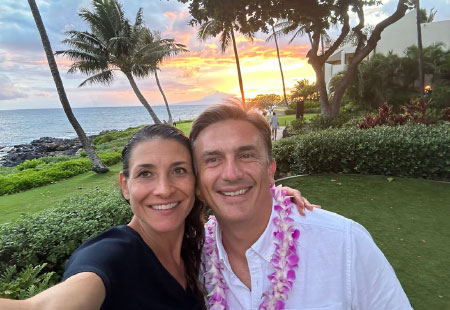
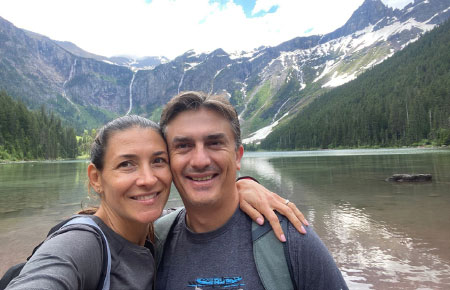
After earning his J.D. in 2003, he joined the firm as a junior associate. The option of working for a larger firm did not appeal to him. He didn’t want to be “just another number.”
“What was attractive to me here at CCN was that I was someone,” he explains. “I was directly servicing the partners, all of whom I admired and aspired to be like.”
He also saw a future for himself at the firm. He recognized the firm had potential and felt he was “sitting in the right place at the right time.”
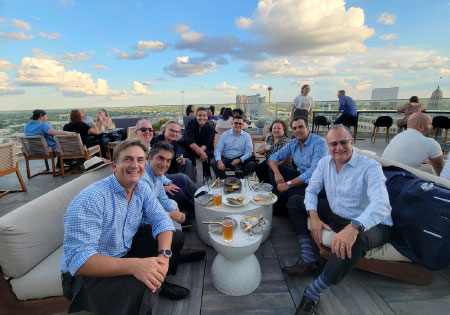
Founded in 1994 in the immediate wake of the North American Free Trade Agreement, Cacheaux, Cavazos & Newton is an international law firm based throughout Mexico in Mexico City, Monterrey, Guadalajara, Tijuana, Queretaro, Ciudad Juarez, Reynosa and Matamoros. The firm’s attorneys are bicultural, bilingual, and are licensed to practice law in the U.S., Iker being an example of such, and Mexico. The firm helps international and domestic clients navigate a broad range of legal issues.
Diéguez has no doubt he made the right choice. He has grown as a lawyer with the firm over the ensuing two decades.“I’m a hundred percent byproduct of the firm,” he says. “I went through the process of being a law clerk, junior associate, senior associate, a partner, and now an equity partner. I feel the same about my law firm that I feel about my wife. I’m lucky that I found them.”
The young attorney was guided into the profession by Felipe Chapula, the first non-founding partner of the firm, who is still in charge of the Mexico City office. His influence on Diéguez is impossible to quantify.
“Felipe patiently taught and trained me,” says Diéguez. “He is the most relevant influence in my career and an important cornerstone of my professional success.”
Diéguez’s practice now centers on business law; assisting corporate clients with organization, operation, and regulatory compliance challenges in different areas, including corporate and securities; industrial property; international trade; customs and real estate issues. He clarifies, however, that his specialty is not an area — it is an activity tailored to the needs of international clients investing in Mexico.
The firm remained in high demand under NAFTA as many U.S. companies sought to take advantage of a Mexican manufacturing and export promotion program known as “maquiladora.” The term maquiladora refers to a factory or manufacturing plant in Mexico and is now identified as IMMEX. Companies that operate under the maquiladora model are able to take advantage of numerous benefits, such as relief of importing duties on input goods and components, provided that all final manufactured products are exported from Mexico within the legally prescribed time period.
“We were the maquiladoras law firm. We were the ones,” says Diéguez. “We were booming.”
Eventually, however, globalization trends pushed many companies to move their manufacturing facilities and relocate their headquarters to developing countries with rising economic power, including China and Brazil. Both arrangements presented challenges created by long distance, higher logistical costs, and a complicated language barrier, which got worse during the COVID pandemic.
The recent trend now is “near-shoring,” where companies are moving their production to countries close to their markets and with similar time zones in order to minimize the effects of disruptions in supply chains.
That, says Diéguez, is good news for Mexico and for his firm.
“There is a bright future in the coming years for both Mexico and our firm,” he says. “It’s a good time ahead. We’ve been doing this for many years, so we are ready for relocating companies and new investments in Mexico.”
For the first 20 years of his career, Diéguez worked out of the Mexico City office, but ever since he first saw that advertisement on the school bulletin board looking for a law clerk able to travel, he dreamed of someday relocating to an office in the United States.
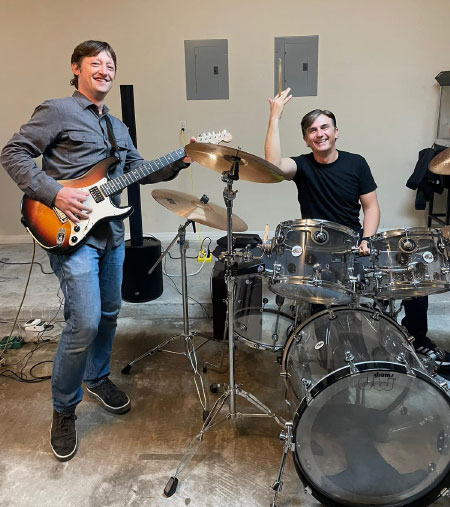
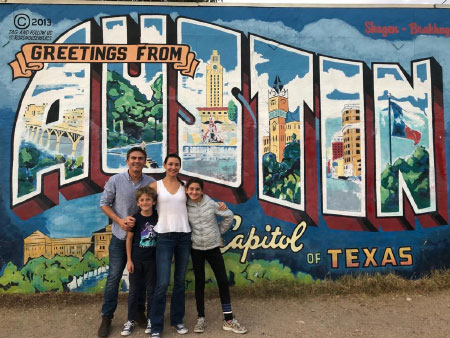
In 2019, the stars aligned. The firm had grown sufficiently in the Mexico City office and his children were the right age. He approached the partners about moving to the US office for a few years. The firm was well positioned to allow him to practice from an office in the U.S. and offer an opportunity to develop more business there.
“We were pioneers of remote working long before COVID,” he says. “We’ve been doing that for years. I was never restricted to Mexico City or anywhere for that matter, as I work with my colleagues from all 11 offices all the time. We are fully integrated. On a daily basis, I assist with matters from all of our offices.”
Diéguez says he offers clients a unique combination of skills. He provides a company interested in setting up a manufacturing facility in Mexico a “one-stop shop to properly soft-land.” He serves as a bridge that resolves any language or business culture barriers. He understands the different legal systems of both countries.
“I not only speak their language, but I know how both sides do business,” says Diéguez. “I provide trust because I’m sitting in their country. It is the same experience they get when hiring a U.S. law firm. I make them feel like they’re doing business locally when in fact they’re doing business across the border.”
In his current office location, it was initially difficult to establish a network because soon after Diéguez and his family arrived the pandemic hit. But it turned out there was a neighborhood tennis court that he and his wife began to frequent, and there he started making contacts.
“Tennis is my golf. I go do tennis to do business,” he says with a laugh. “Tennis has been one of the key elements that has allowed me to make friends and business connections.”
Recently, he and wife won a mixed doubles tournament. He says his wife draws on her softball experience on the court and her shots can be like “a bazooka.” It was the first time the couple had competed in a doubles tournament.
“If you want to test your marriage, just go and play a mixed doubles tournament,” he says. “It could be a disaster. But we were a very successful combination.”
As he settled into the new office, his mentor, Chapula, approached him about becoming more involved with Primerus. And Diéguez committed fully to the request. He is currently a board member on the International Practice Committee; the co-chair of the Consumer Protection Practice Group; co-chair of the Automotive Practice Group; a member of the Quality Assurance Board, with active participation in the Cybersecurity and Quality of Life initiatives; member of the Primerus Ambassadors Board; and a committee member of the newly formed Developing Partners Committee.
“I love Primerus,” says Diéguez. “I love what Primerus is and I love who I am in Primerus and the role that I play for my firm in connection with Primerus. I’m very proud to be the representative of my firm in Primerus.”
His involvement with Primerus has been an important tool in helping him develop and expand his professional network.
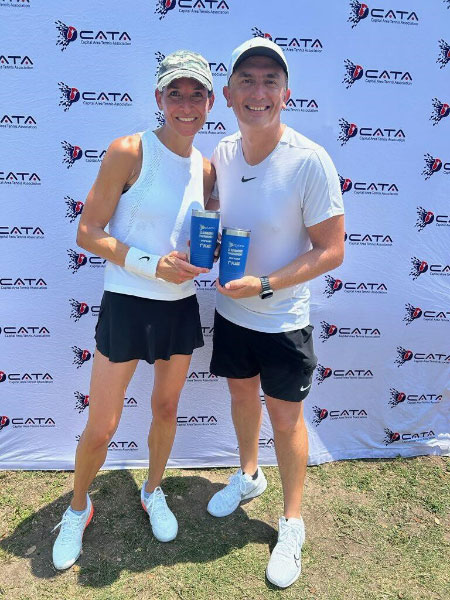
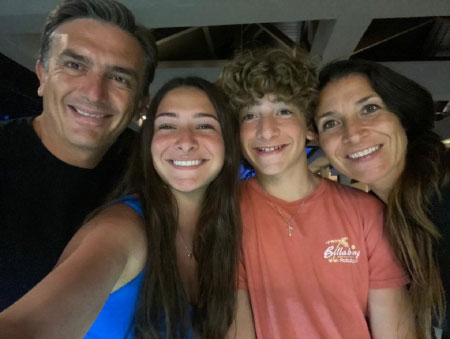
“In Mexico, you become friends and then you do business. I have been able to spread that mentality in Primerus, I feel, and I have a lot of friends that I happen to do business with,” he says. “I’m not just referring client matters to a firm listed on a website. I’m referring matters to my professionally trusted friends.”
Looking back on his career, Diéguez can still evoke the excitement he felt as a young law student seeing an advertisement on a hallway bulletin board that offered the promise of travel and interesting, rewarding work — a promise that was kept.
“It’s been a fantastic ride so far,” he says. “It’s a real dream.”